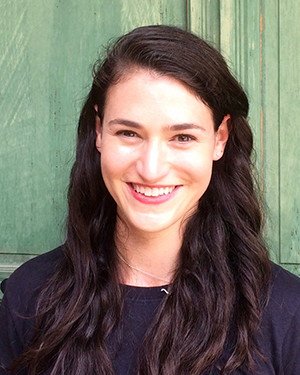Faculty Spotlight: Welcome Dr. Ariel Starr
 |
| Ariel Starr |
Dr. Ariel Starr recently joined the Psychology Department as an Assistant Professor in the Autumn of 2019 in the area of Developmental Psychology. We recently had the chance to speak with her about her research.
How did you become interested in Developmental Psychology and more specifically how language interacts with other cognitive abilities during human development?
In high school I read The Language Instinct by Steven Pinker and became interested in how language influences thought. Then in college I started working in a lab that studies how children learn the meaning of number words. I realized that studying how children learn language provides the opportunity to study both how learning language changes thought, but also how children’s early language use sheds light on their existing cognitive processes. I’ve been studying cognitive development ever since.
It is an exciting time in the Department of Psychology to be starting a research lab, what projects or areas of research are you excited to pursue?
The first projects we’ve started in the Language, Cognition, & Development Lab involve investigating memory development. The building blocks of episodic memory are “what,” “where,” and “when.” The “when” part seems to be most difficult for children and is the slowest to develop; it is also the part that is least common in non-human animals. This may be because time is relatively abstract – we cannot directly experience it. One way that cultures may make it easier to think about time is to think about time in terms of space. For example, we use calendars that arrange the passage of time from left-to-right, and we can say things like, “I’m looking forward to winter break” or “I’m glad the fall quarter is behind us.” In our studies, we are exploring how these types of spatiotemporal associations may help children (and adults) keep track of the order of when things happened. We are also exploring how children’s understanding of temporal words like “today,” “tomorrow,” and “yesterday” influences temporal memory. Next quarter we will begin studying the origins of temporal memory in infants.
Your current research involves the use of behavioral and eye-tracking methodologies with infants and children to answer questions about the development of memory, language, numerical cognition, and abstract concepts. How have these relatively new technologies helped advance research in your field of developmental psychology? How has your research benefited from incorporating these methodologies?
There are many things about eye tracking that I’m excited about! One is that because eye movements are naturally occurring all the time, they can provide a window into cognition. For example, by comparing the eye movements that children versus adults make while solving a visual puzzle, we can see how problem-solving strategies change over development. Eye tracking and pupillometry (changes in pupil dilation) are also very helpful for investigating infant cognition. Because babies don’t yet talk and can’t explicitly tell us what they are thinking, we can use their eye movements and pupil dilation to make inferences about how they are thinking about the world. Also, because eye movements and changes in pupil dilation occur spontaneously, these types of metrics can be used with infants, children, and adults to study how cognitive processes are changing throughout the lifespan.
What classes are you excited to be teaching? Any other classes that our psychology undergraduate students look forward to take with you?
I’m looking forward to teaching classes on cognitive development to both graduate and undergraduate students. I’m particularly excited to help students think about doing developmental research as not just as a way to learn about children but also as a method for tackling larger questions in psychology. Where do concepts come from? How does language shape thought? What cognitive abilities may be unique to humans?